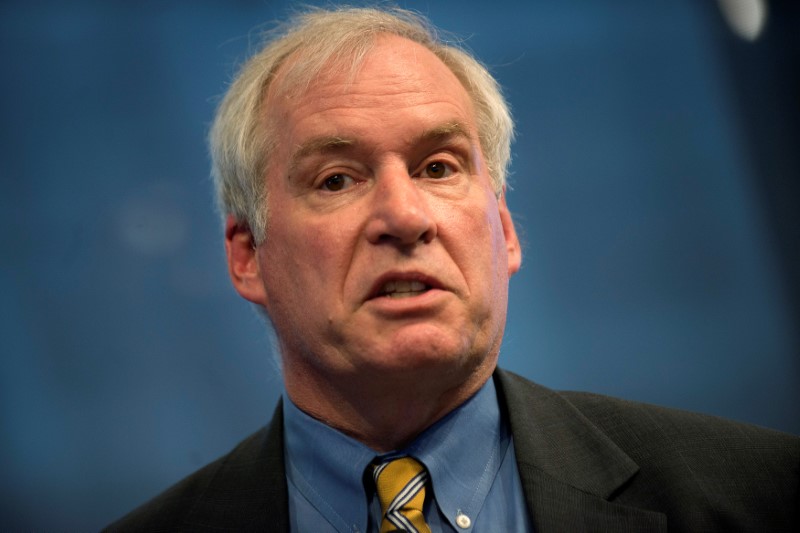By Ann Saphir
(Reuters) - The recent drop in U.S. unemployment could spark a surge in inflation that, given the Federal Reserve's current policy framework, could trigger interest-rate hikes that bring on a recession, Boston Federal Reserve President Eric Rosengren warned on Friday.
"I'm disagreeing with that framework," Rosengren said at the Global Interdependence Center in San Diego, referring to the Fed's "balanced" approach to achieving a 2-percent inflation target and full employment. The Fed adopted this framework six years ago and has reaffirmed it each year since.
Now, as Fed Governor Jerome Powell prepares to take the reins as Fed chief from Janet Yellen when her term ends early next month, a growing number of Fed policymakers want to rethink that framework.
Rosengren's comments Friday put the sharpest point to date on the debate, suggesting that a strict 2-percent inflation target could force the Fed to slam the brakes on the economy with aggressive rate hikes if the unemployment rate, now at 4.1 percent, continues to sink. It is already below the level that many economists think can be sustained without putting upward pressure on inflation.
While inflation running stubbornly below 2 percent has so far allowed the Fed to lift rates only gradually, that may change, Rosengren warned.
"My concern is if we get too far away from where we want to be on a sustainable unemployment rate, and we use this current framework, then we will get to a situation where we have to raise rates fast enough that we will actually find it very difficult to get back to full employment without causing a recession," Rosengren said.
Rosengren suggested replacing the 2-percent inflation target with a target range for inflation of between 1.5 percent and 3 percent, in line with actual experience over the last 20 years.
Under current conditions of low productivity and labor force growth, he said, the Fed would target inflation at the upper end of that range, and would be more patient with rate hikes.
Rosengren's solution, proposed publicly for the first time in detail in his Friday speech, differs from approaches preferred by some of his colleagues, including targeting an average rate of 2-percent inflation, or lifting the inflation target to 4 percent.
But common to all of the approaches is the view that the central bank needs better leverage against future recessions than the current approach affords.
"We are approaching a time when a comprehensive reconsideration of the monetary policy framework is likely warranted," Rosengren said.
